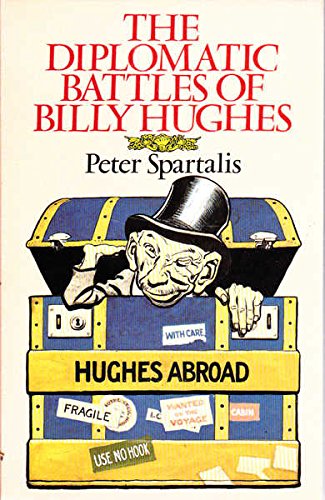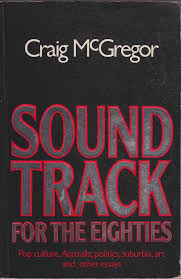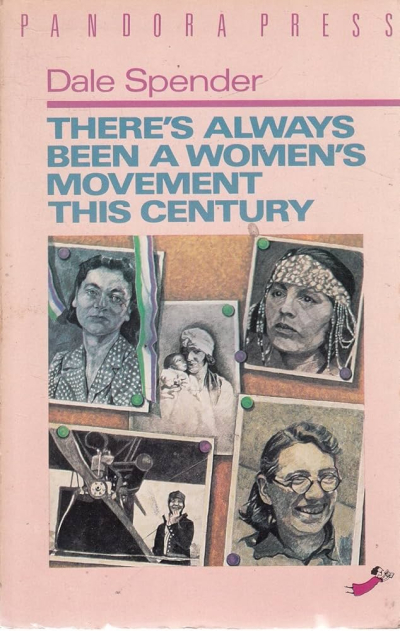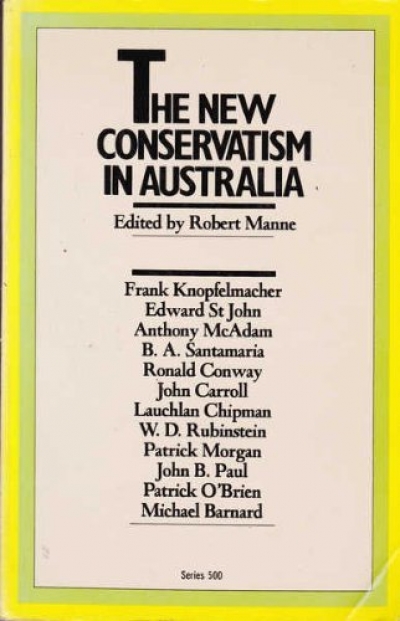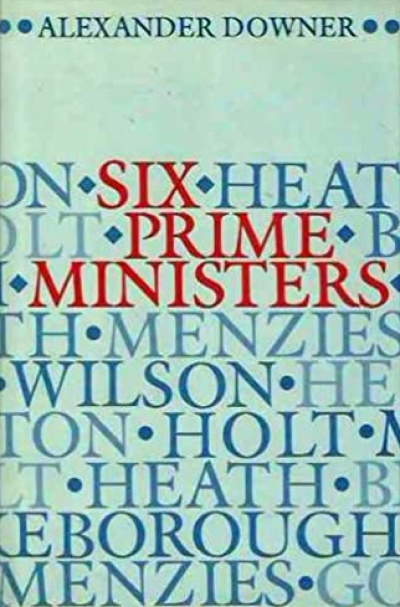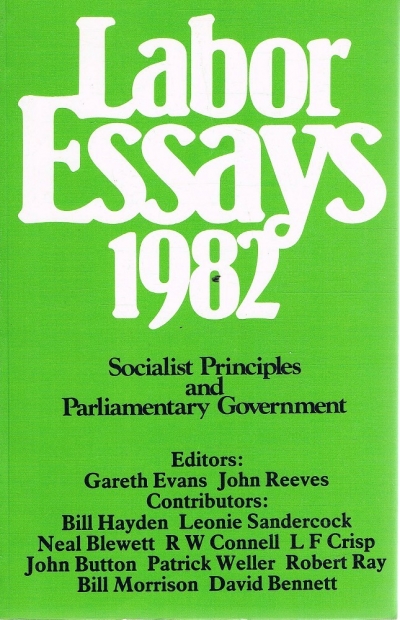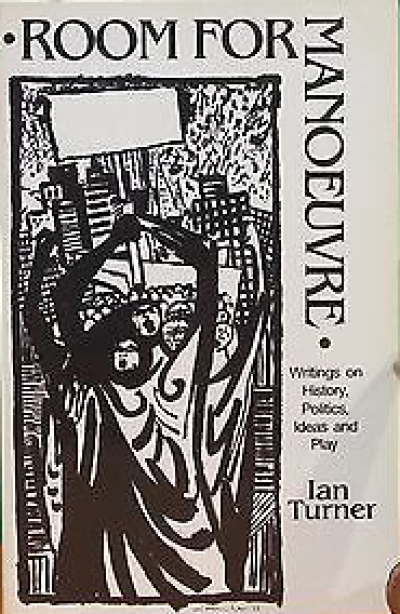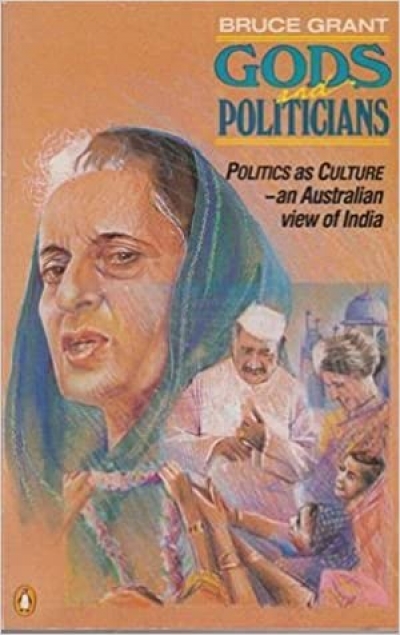Politics
Billy Hughes, Prime Minister of Australia from 1915 to 1923, had that same acerbic larrikin quality in his dealings with enemies at home and abroad that has become familiar to us in our current elected leader. Yet Hughes never forsook the heedless and stubborn directness that seems to have deserted Bob Hawke in recent and more sober times. Peter Spartalis’s book is about Hughes’s colourful and dynamic international role and achievements as Prime Minister and about the many protracted battles he fought in what he believed to be Australia’s diplomatic interests though there was nothing at all diplomatic about his style.
... (read more)In a recent issue of the British ‘Bookseller’, a columnist wishing to explain the apparent lack of success in UK of Anthony Grey’s attempt to convince people that the late Harold Holt was a spy for the Chinese said ‘the fact is that the British public does not give a damn for Australian Prime Ministers’. Perhaps the reason for the comparative failure of the same book in Australia is that the Australian public does not give a damn for the views of pommy journalists.
... (read more)In an essay on ‘Equality’ Craig McGregor tells us that when he was a kid he was mystified by those tales where the fisherman’s wife or whoever would be given three wishes by the Good Fairy and she ‘always wished for crazy self-indulgent things like ‘ I wish everybody I touched turned to gold’, and of course it always rebounded on them ... and I always wondered why they didn’t wish for something more general, like wishing that everyone in the world ... should be happy every afterwards, because then nothing could ever go wrong again and the world would be a perfect place to live in ... all it needed of the fishermen and fishermen’s wives and shoemakers and others was a bit of imagination, and a bit of common sense, and just a hint of generosity ... Ah! the birth of utopianism.’
... (read more)Intruders on the Rights of Men by Lynne Spender & There's Always Been a Women's Movement this Century by Dale Spender
‘“No room! No room!” they cried out when they saw Alice coming.’ In her introduction to There's Always Been A Women's Movement this Century, Dale Spender admits that the elan of involvement in the recent women’s movement made her overlook ‘the unlit corridor of women's history’. She deplores ‘the process of reducing women to invisibility’. In a patriarchy, ‘sexism’ is ‘something that all members do ... There weren’t many patriarchal traps that I did not fall into’. Wanting to ‘generate a tradition of strong authoritative women’, she interviewed five ‘elder stateswomen’, all born between 1890 and 1910: journalist and leader of the six Point Group for equality Hazel Hunkins Hallinan; journalist and novelist Rebecca West; pacifist, educationalist and writer Dora Russell; journalist and Fawcett Society stalwart Mary Stott; sociologist Constance Rover. The result was ‘a genuine educational experience’ that prompts some flushed prior publicity: ‘it would be a (patriarchal) mistake to think of these discussions as insignificant but pleasant gossip about old times. This is a form of women's history ... each women tells her own story ... despite all the many limitations, we have here a valuable record’.
... (read more)Those who have hopes or fears of a Reagan–Thatcher hardline conservatism arising in Australia can forget it, if this newest attempt by the local ‘right’ to define itself is any guide. For a major topic, it is a listless, sickly growth from Australia’s whiggish soil that struggles – mostly unsuccessfully – for anything new to say.
... (read more)George Munster reviews 'The Things We Did Last Summer' by Bob Ellis, '31 Days to Power' by Robert Haupt with Michelle Grattan, 'Time of Testing' by Craig McGregor, and 'Gamble for Power' by Anne Summers
‘In fifty years’ time,’ Robert Haupt and Michelle Grattan write in 31 Days to Power. ‘historians will look at the 1983 elections, see that inflation, unemployment and interest rates were at high levels compared to the past, and conclude that Fraser could never have won’.
... (read more)Sir Alexander Downer (1910–81) was a man of great courtesy, absolute integrity, honesty in reporting the things be observed. I think that these attributes are all self-evident in the book he has written about six Australian prime ministers. Also apparent was, I believe, a too subservient attitude to a Britain which was disappearing and changing throughout his life. After all, the concept of the Queen as the Queen of Australia – instead of the Queen of Britain or the Commonwealth – received acceptance only after World War II, which incidentally was a war that Alec Downer saw out living in the hell of Changi Prison Camp.
... (read more)Labor Essays 1982: Socialist principles and parliamentary government published on behalf of the Australian Labor Party by Gareth Evans and John Reeves
Times are changing within the Labor party. As L.F. Crisp points out in his essay on the branches, the new membership is often educated middle class and keen to discuss the International Situation where once the thing was to have a few beers and raffle a chook. Even Bill Hayden, despite his cop background, reflects some of the new flavour of the party with his too often carping manner, redolent of the classroom pedant. That Labor Essays – ‘designed to stimulate creative thought within and without the party’ – should have begun to appear in 1980 seems not unrelated to the growing desire within the party for intellectual as well as emotional satisfaction.
... (read more)Room for Manoeuvre: Writings on history, politics, ideas and play edited by Leonie Sandercock and Stephen Murray-Smith
A joke told annually and publicly for fourteen years closes this collection of Ian Turner’s work. From 1965 to 1978, Turner delivered the Ron Barassi Memorial Lecture and so created the site of an imagined overlap between the more formal rituals of the intellectual culture and the rowdy world of spectatordom, the VFL, the most visible and familiar self-presentation of the popular. He fabricated this site for speaking ‘our’ culture by romping around it in careful pastiche.
... (read more)At a time when one is reading of Cabinet decisions to cut many of the remaining constitutional links with Britain (Premiers’ Conference, June), thus moving Australia closer to national sovereignty, it is timely to be reminded of events only just over the contemporary horizon which could be said to have matured this nation into quickening the pace towards that independence of British dominion – no matter how tenuous politically, yet still incipiently present in the Statute Books and by Privy Council.
... (read more)

